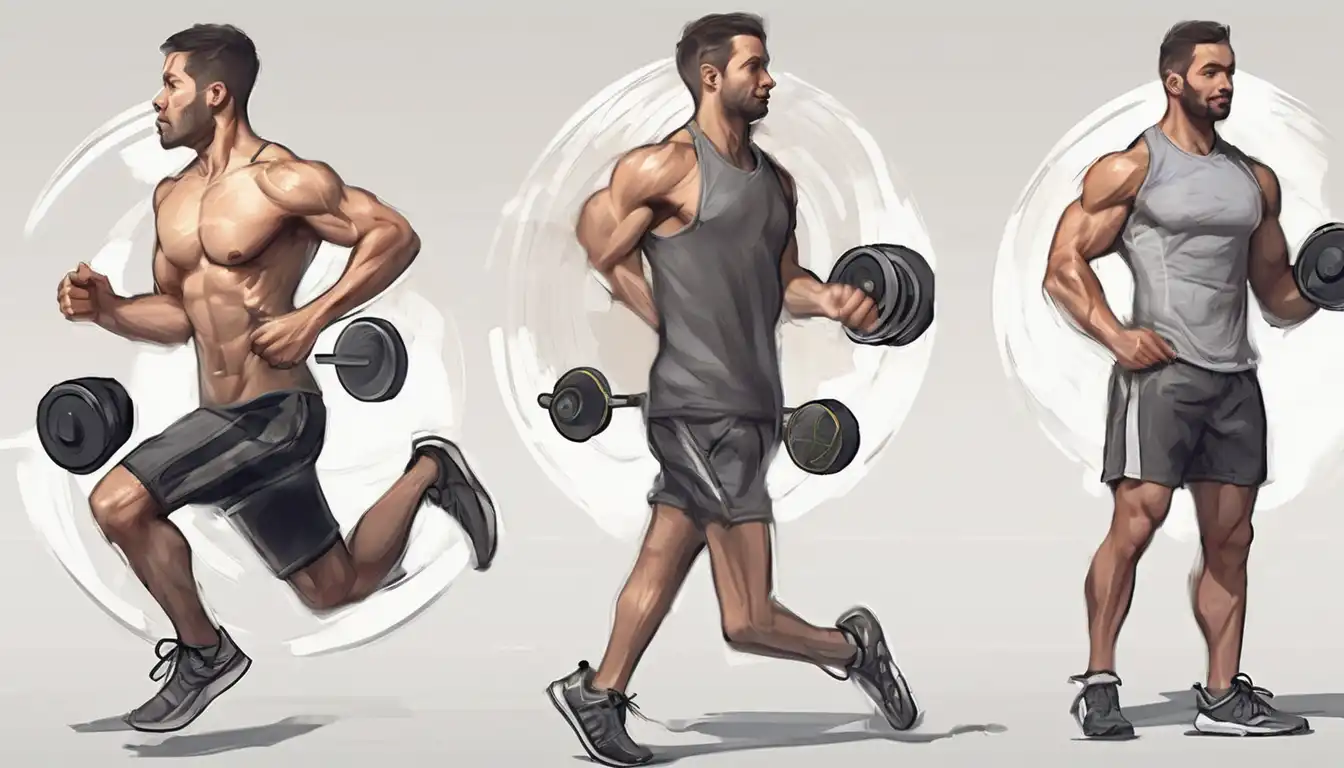Getting Started with Your Fitness Journey
Embarking on a fitness journey can feel overwhelming, but with the right approach, anyone can build a sustainable workout routine that delivers real results. Whether you're looking to lose weight, build strength, or simply improve your overall health, this comprehensive guide will walk you through every step of creating your first fitness plan.
Why Start a Fitness Routine?
Regular exercise offers numerous benefits beyond just physical appearance. Consistent workouts can boost your energy levels, improve mental health, reduce stress, and lower your risk of chronic diseases. Many beginners find that once they establish a routine, they experience better sleep, increased confidence, and improved overall quality of life.
Assessing Your Current Fitness Level
Before diving into any workout program, it's crucial to honestly assess your current fitness level. Consider factors like your endurance, strength, flexibility, and any physical limitations. This self-assessment will help you set realistic goals and choose appropriate exercises. If you have any health concerns, consult with a healthcare professional before beginning your fitness journey.
Setting SMART Fitness Goals
Effective goal-setting is the foundation of any successful fitness routine. Use the SMART framework: Specific, Measurable, Achievable, Relevant, and Time-bound. Instead of vague goals like "get fit," aim for specific targets such as "walk 30 minutes daily" or "complete 10 push-ups without stopping." These clear objectives will keep you motivated and track your progress effectively.
Choosing the Right Type of Exercise
Different exercises serve different purposes, and a balanced routine should include several components:
Cardiovascular Exercise
Cardio workouts improve heart health and burn calories. Beginner-friendly options include brisk walking, cycling, swimming, or using elliptical machines. Start with 20-30 minutes of moderate-intensity cardio 3-4 times per week, gradually increasing duration and intensity as your fitness improves.
Strength Training Basics
Strength training builds muscle, boosts metabolism, and strengthens bones. Beginners should focus on compound exercises that work multiple muscle groups simultaneously. Bodyweight exercises like squats, push-ups, and planks are excellent starting points before progressing to weights.
Flexibility and Mobility Work
Don't neglect stretching and mobility exercises. Incorporating yoga or simple stretching routines can improve your range of motion, reduce injury risk, and aid recovery. Aim for 5-10 minutes of stretching after each workout session.
Creating Your Weekly Workout Schedule
A balanced weekly schedule might include 3-4 days of cardio, 2-3 days of strength training, and daily flexibility work. Remember to include rest days—your body needs time to recover and rebuild. Many beginners find success with alternating workout types, such as cardio on Monday, strength training on Tuesday, and so on.
Sample Beginner Workout Plan
Here's a simple starter plan for your first month:
- Monday: 20-minute walk + bodyweight squats and push-ups
- Tuesday: Rest or light stretching
- Wednesday: 25-minute cycling + plank exercises
- Thursday: Active recovery (gentle yoga or walking)
- Friday: 30-minute swim + light strength exercises
- Weekend: Rest or enjoyable physical activity
Essential Equipment for Beginners
You don't need an expensive gym membership to start your fitness journey. Basic equipment might include comfortable workout clothes, supportive shoes, a water bottle, and perhaps a yoga mat. As you progress, consider investing in resistance bands or dumbbells, but remember that bodyweight exercises can be highly effective.
Proper Form and Technique
Learning correct exercise form is crucial for preventing injuries and maximizing results. Focus on quality over quantity—better to perform fewer repetitions with proper form than many repetitions incorrectly. Consider working with a trainer initially or using reliable online resources to learn proper techniques.
Common Beginner Mistakes to Avoid
Many newcomers make similar errors when starting their fitness journey. Avoid doing too much too soon, which can lead to burnout or injury. Don't compare your progress to others, and remember that consistency matters more than intensity. Also, don't neglect nutrition and hydration—exercise and diet work together for optimal results.
Staying Motivated and Tracking Progress
Maintaining motivation is often the biggest challenge for beginners. Find activities you enjoy, vary your routine to prevent boredom, and celebrate small victories along the way. Keep a workout journal or use fitness apps to track your progress. Seeing improvements over time can be incredibly motivating.
Building Consistency Habits
Consistency is more important than perfection when establishing a fitness routine. Schedule your workouts like important appointments, find an accountability partner, and focus on building the habit rather than chasing immediate results. Even short workouts count—the key is showing up regularly.
Nutrition and Hydration for Exercise
Proper nutrition fuels your workouts and supports recovery. Focus on balanced meals containing lean proteins, complex carbohydrates, healthy fats, and plenty of fruits and vegetables. Stay hydrated throughout the day, especially around workout times. Remember that fitness and nutrition go hand in hand for achieving your health goals.
When to Progress Your Routine
As your fitness improves, you'll need to challenge your body with increased intensity, duration, or new exercises. Generally, consider progressing when your current workouts feel comfortable—usually every 4-6 weeks for beginners. This progression principle ensures continued improvement and prevents plateaus.
Overcoming Common Challenges
Every beginner faces obstacles like lack of time, low energy, or motivation slumps. Prepare strategies in advance: have shorter workout options for busy days, remember how good you feel after exercising, and don't let one missed workout derail your entire routine. The most successful exercisers are those who get back on track quickly after setbacks.
Long-Term Fitness Success
View fitness as a lifelong journey rather than a short-term project. As you become more experienced, you can explore different types of exercise, set new goals, and continue challenging yourself. The habits you build now will serve you for years to come, contributing to lasting health and wellbeing.
Remember that every fitness expert was once a beginner. Start where you are, be patient with your progress, and focus on building sustainable habits. Your future self will thank you for taking this important step toward better health.
